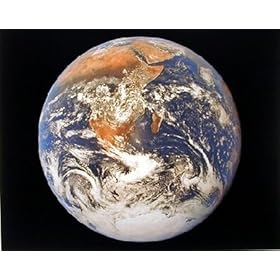Global Warming Is Irreversible
Posted in Environment, Science on January 28th, 2009 Irreversible. That’s what a new study reported by NPR says:
Irreversible. That’s what a new study reported by NPR says:
As carbon dioxide emissions continue to rise, the world will experience more and more long-term environmental disruption. The damage will persist even when, and if, emissions are brought under control, says study author Susan Solomon, who is among the world’s top climate scientists.
I’ve heard that mentioned for a long time. There were several times over the past thirty of forty years where significant changes might have made a difference. But, once we reach the tipping point there’s no turning back. Things will change and we have to adapt to those changes.
“People have imagined that if we stopped emitting carbon dioxide that the climate would go back to normal in 100 years or 200 years. What we’re showing here is that’s not right. It’s essentially an irreversible change that will last for more than a thousand years,” Solomon says.
This is because the oceans are currently soaking up a lot of the planet’s excess heat — and a lot of the carbon dioxide put into the air. The carbon dioxide and heat will eventually start coming out of the ocean. And that will take place for many hundreds of years.
Do we still have to make changes to the way we pollute the environment and cut back on carbon emissions. Yes, we do. Because we can continue to make things worse. It’s about the only thing we can be sure of — we can make it worse. So, why not try to adapt, change and learn to protect our environment as much as we can.
Dr. Solomon, a scientist at NOAA (National Oceanographic and Atmospheric Administration) also said:
If we continue with business as usual for even a few more decades, she says, those emissions could be enough to create permanent dust-bowl conditions in the U.S. Southwest and around the Mediterranean.
So, we should be doing everything in our power as citizens of the planet to help contain the damage we’ve already done to our planet. It’s not like we have anywhere else to go — at least not right yet. Since this is the only planet we have to live on we can’t afford to make a worse mess of it. So, do your part to reduce the damage — recycle, reduce your carbon footprint, look for ways to live a greener life.





